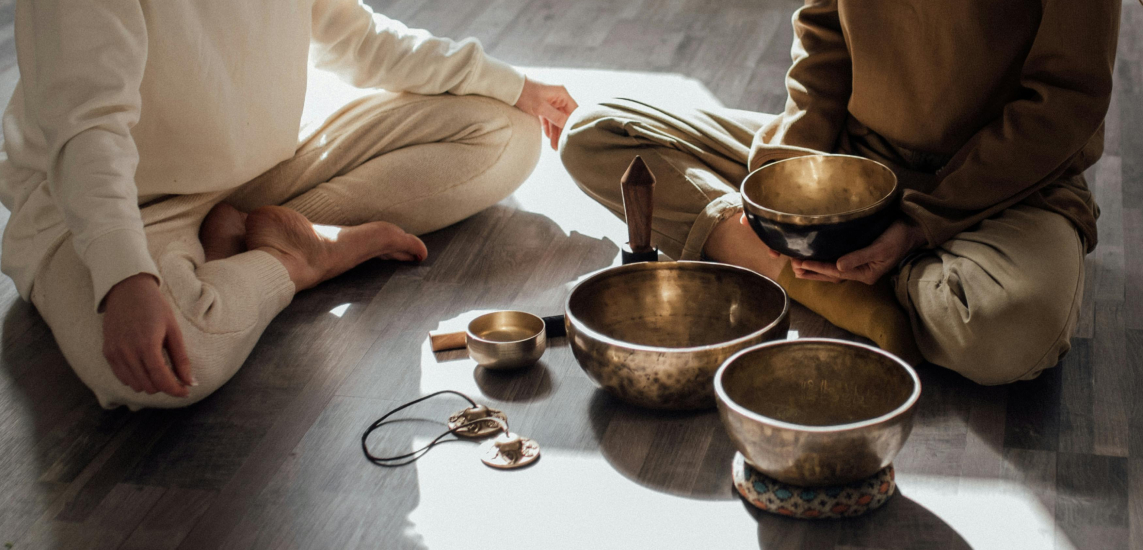How often are you in a room with others and ask the question, “I wonder what they are thinking of me?” Probably too often to count. It’s almost as if self-consciousness is our default mode. We are constantly afraid of our appearance, how we talk, and are over careful as to not invade others space. We’re even so inclined to apologize for having to use the restroom! This article explores how to stop caring about what others think and take back your personal power.
The Roots Of Fearful Self-Consciousness
This self-consciousness is rooted in feelings of unworthiness, and often it’s just how our society functions. We’re always on the lookout for what others may be thinking in fear of not being accepted. We’re afraid of being the butt of someone’s joke or stepping on someone’s toes. It’s as if shame is hanging over our heads, waiting for us to mess up so it can initiate its wrath. The roots of this are deep and it’s only in the past few years that have I realized its effect on me.
I’m a people pleaser. I just want to do good and have people like me. Although sure, this can be helpful, there is a dark side to it. People pleasing comes with fear, hesitation, and a shame that comes from not getting it right, or God forbid, doing something other people don’t agree with. But how else can we live our truth than to step out of the box and risk ridicule? We can’t. We instead have to learn how to step into our authentic selves, and trust in our unique greatness.
Read more: Find out more about the benefits of stepping out of your comfort zone and discover three questions that can start the journey out of the comfy bubble and towards knowing how to stop caring about what others think.
How To Stop Caring About What Others Think
It’s my personal growth and learning through this topic that I’d like to share with you. Here are three tips to help you in the process of not caring so much about what others think.
1. Give yourself permission, don’t wait for it
Since preschool, we have been trained to think that there is always a person we have to look up to ask for permission. From a teacher giving us permission to use the restroom, to a college giving us permission to be a student, and later, a boss giving us permission on the days we can take off and the projects we can work on.
After years of this programming, it’s no wonder we always feel like there is this judge we have to check-in with every time we have to make a decision. Especially, one that involves some sort of risk.
Being an adult is scary because now we have to make our own decisions. However, we’re still programmed in permission mindset. We’re so scared of judgment that we allow other people’s opinions to have more influence on our lives than our own. This causes us to doubt ourselves and move away from what our hearts say because we think others know better. But really, they’re just as afraid and unsure as we are.
That’s not to say we dismiss people all-together. Advice from others still has its place. You are reading this now, and I hope are able to receive it as guidance.
But how do we know if someone’s opinions are worth listening to? Here are a few questions to ask yourself that may help discern who you take advice from:
- Is this person happy with their life? This is such a basic concept, yet it’s easily overlooked. We are so scared that we take advice and listen to people who aren’t happy, and often they just project their limitations on our life is out of their unhappiness.
- Is this person living a life that I want? I remember a time right before quitting my corporate marketing job. I looked around at the offices at every position I would be promoted to and saw that they all seemed trapped. Right there, I had this realization that I didn’t want to be any of these people. Not my manager, not my CEO, no one. So why was listening to them?
- Is this person acting out of their own fears? Maybe it’s your parent or loved ones who don’t want you to leave a job and because they fear your security. Completely valid, but really what they’re afraid of is their own security and the pressure they think you’re going to put on them to always be worrying.
Regardless of who you listen to, your innate wisdom knows best. If you feel called to take action but hesitate because you feel you need someone’s approval, here is saying I like to remind myself of, “It’s better to ask for forgiveness than to ask for permission.”
2. Stop comparing yourself to others
We’re so scared of what other people think because we’ve made up these rules. Rules of how far we should be at age x, how much money we should have in the bank, when we should get married, and how long it will take to be successful.
If we aren’t living up to someone else’s expectations, we feel judged and less than. But other people’s expectations are something they made up, based on their journey. Their journey has nothing to do with yours.
Comparison is in an epidemic because of social media. People are only portraying snippets of the best parts of their life, but it’s never the whole story. The issue is that we think it is, and then make ourselves feel like we’re not enough because we don’t match up. Let’s also take someone in your career field because this one hits home for me. Whether it’s a field you’ve been in for a long time or one that your desiring to get into. We follow them on social media for inspiration, but then find it can be the opposite.
Read more: Is the rise of mental health rates linked to Instagram, Snapchat, Facebook & Co.? Clinical psychologist Dr. Lillian Nejad reflects on the impact of social media on youth mental health and how to reduce the dysfunctional impact.
As a meditation teacher, it’s easy to fall into this. I’d see people who are making a big impact and feel like I could never live up to. What I realized is that I can’t compare my chapter 2 to their chapter 50. If you’re a high school basketball player, why are you comparing yourself to Lebron James? You can’t compare yourself to others because you don’t know the journey they’ve been on. You don’t even know if they’re happy. You can only compare yourself to yourself. It’s more rewarding and you’re making much more valuable use of your time.
Read more: Not knowing how to stop caring about what others think can sometimes be linked to not knowing how to say no. Find out how to say this two-letter word without feeling guilty.
3. Don’t be jealous, celebrate other people’s success
Jealousy is so detrimental to our growth because it is a fundamental belief that there is lack. You see someone in your field do a good job and you feel like their success in some way makes less success available for you. This isn’t necessarily our fault we feel this. We’ve grown up in a culture of competition. For me, I was an athlete, so it was always about winning and losing, and when a teammate got the starting position over me, even though I liked him, I was covetous.
As with much in our society, spiritual truth is the exact opposite. The truth is that there is more than enough to go around, and our job is to realize our own enoughness and stay focused on our own path. If you stay on your path long enough, you will learn that other people thriving on their path can only help us.
Sympathetic joy: Take jealousy as a teacher
There is also a positive side to jealousy. We can see jealousy as a teacher. The fact that we would be jealous of someone says that they have something we desire. Instead of being envious of this person, we can be curious about what it is about this person that we want? If we get curious we can ask deeper questions, and with some practice, we can discern how to apply what they have in our life.
Regardless of what jealousy tells you, our work is to learn how to be happy for others because if we’re angry that someone else is succeeding, we’re sending a message to our brain that we ourselves don’t like success. Because if we did, why would we have negative feelings towards it?
There is so much love, success and joy to go around for you, for me, for my friends, and for your friends. We must let go of our blocks to celebrating others success. Next time you find yourself in the midst of jealousy, see if you can pause and notice it. Instead of feeling contempt, see if you can send positive wishes to this person. Congratulate them in your heart and wish that their success continues. This is the practice of sympathetic joy, or “Mudita” as the Buddhists call it. It is transformational, and may even bring more joy and success to you.
Meditation teacher Lou Redmond offers multiple guided meditations around this topic. Start letting go of insecurities and practice how to stop caring about what others think with the help of these handpicked meditations:
- Stop Caring About What Others Think (Guided Meditation) Lou Redmond 21:23
- Sympathetic Joy Lou Redmond 17:10
- You Are Right Where You Need To Be Lou Redmond 20:43
- Trust Your Journey Lou Redmond 21:06
- Let It Move Through You Lou Redmond 29:55
In his 10-day course “Learn To Stop Caring What Others Think”, Lou Redmond dives deeper into transforming feelings of jealousy and stopping to compare yourself with others. The course offers theoretical and practical advice and tools to regain confidence and self-trust.





-1.jpg)

